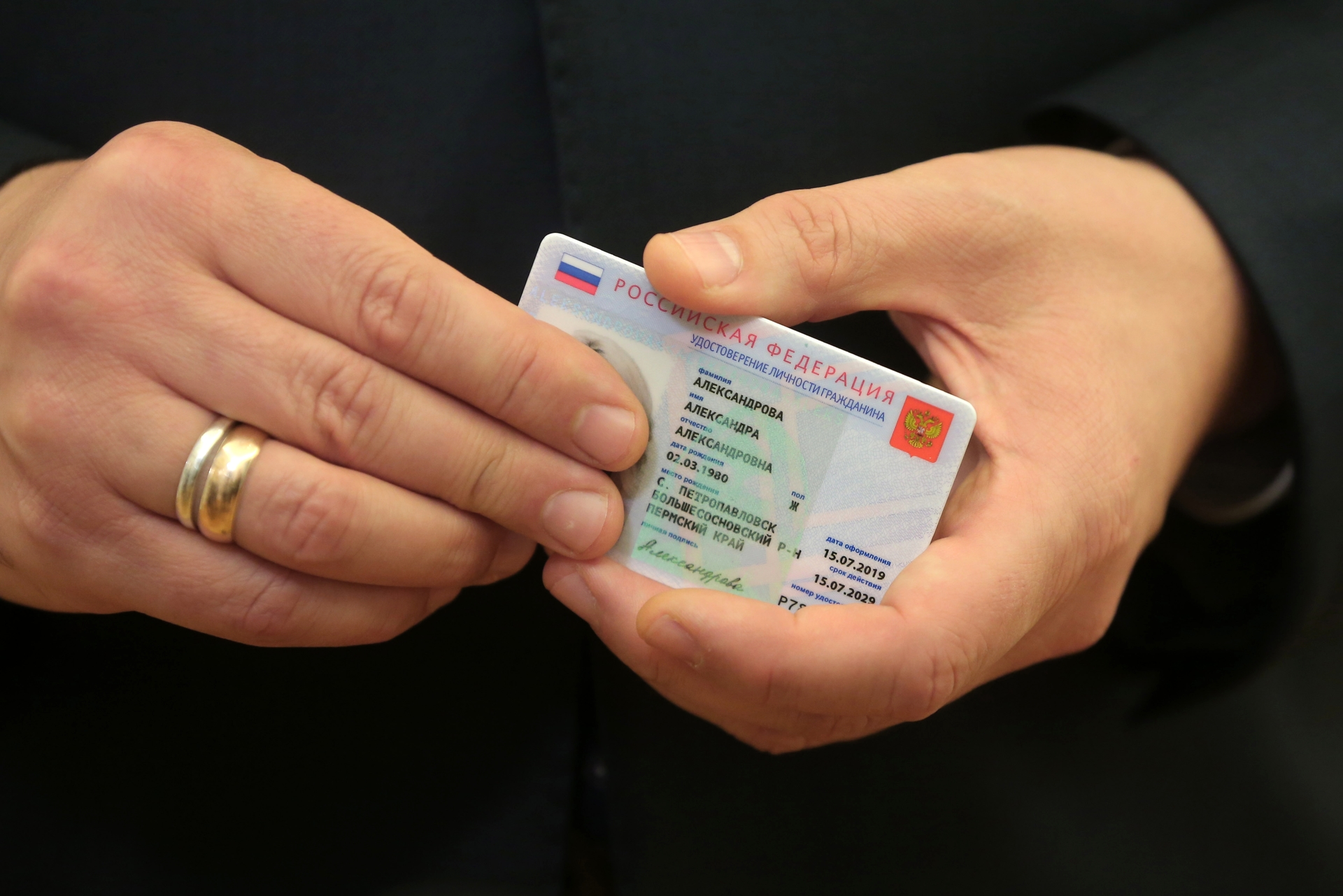The Ministry of Internal Affairs of Russia will cancel the paper passport of the citizens of the country upon receipt of the electronic one.
TASS was informed about this in the press center of the department.
The ministry explained that a citizen cannot have two valid passports at the same time.
"The previously issued paper passport will be canceled when issuing a passport of a citizen of the Russian Federation containing an electronic carrier of information," the ministry said.
They also noted that the issuance of electronic and foreign passports is not interconnected, so the two documents will still have different legal force.
It is planned to issue passports with an electronic carrier of information on a voluntary basis to citizens of Russia, starting from the age of 14, the Ministry of Internal Affairs recalled.
In May, Russian Deputy Prime Minister Dmitry Chernyshenko announced that the electronic passport would be a plastic card in the format of a regular bank card.
It will have a photo of the owner, full name and date of birth.
Also, the card will contain an electronic storage medium, which is needed to store personal and biometric data, including a face image, fingerprints and registration address.
“An electronic passport will be used on the territory of Russia on a par with a paper one, its registration is exclusively voluntary.
But after receiving an electronic passport, the paper one will be considered invalid, "Chernyshenko noted.
RIA News
© Ekaterina Shtukina
At the end of December, the Deputy Prime Minister announced that a pilot project for the issuance of electronic passports is planned to be launched in 2023 in three regions of Russia - Moscow, the Moscow Region and Tatarstan, while such a passport can be used anywhere in Russia.
“The card, containing several degrees of protection against counterfeiting, will include the personal data of a person, his photograph.
All preparatory activities will be completed by the end of next year, ”he said in an interview with RIA Novosti.
The Deputy Prime Minister added that, if desired, it will be possible to enter other information into memory, for example, TIN, SNILS or driver's license number.
Valentina Kazakova, head of the MIA's Main Directorate for Migration, also said on the air of the Militseyskaya Volna radio that the start of issuing e-passports is planned for 2023.
She clarified that the Ministry of Internal Affairs, the Ministry of Digital Affairs, as well as interested state bodies are working out detailed requirements for the procedure for issuing and issuing such passports.
“Issuance of passports will be made on a voluntary basis to citizens from 14 years old, no priority order of its receipt is provided.
From a legal point of view, a passport with an electronic carrier of information will have the same status as a valid "paper" passport, "she said.
Also in early December, the Minister of Digital Development, Communications and Mass Media of Russia Maksut Shadayev said that the draft decree on the issuance of electronic passports to Russians was ready.
“We removed all the differences ... We settled everything,” he said.
In October, Shadayev said that the document will be presented in two versions - a smart card and an application with a QR code.
Earlier, the Ministry of Internal Affairs emphasized that the smart card, as well as the mobile application that complements it, “will become the key” to government and commercial services - when performing various operations, it will not be required to drive in your data every time.
At the end of November, Vladimir Petrov, First Deputy Chairman of the Public Chamber of the Leningrad Region, proposed to combine the general civil passport of a citizen of the Russian Federation, a foreign passport, as well as SNILS and TIN into a single document of a new type.
He sent a corresponding appeal to the Prime Minister Mikhail Mishustin.
As Petrov noted, over time and as a result of technical progress, the appearance of civil documents constantly "changed its shape and appearance."
"More and more countries and states are coming to the practice of cloud storage of data about citizens, as well as the introduction of uniform carriers of personal documents," he explained to RT.
In his opinion, the current trend suggests that "a heap of various civil documents will be concentrated in a single accumulating document, convenient for use and storage."
Petrov emphasized that such a measure will increase the convenience of using documents for citizens, as well as create a powerful basis for modernizing the state document flow and accounting scheme in Russia.

